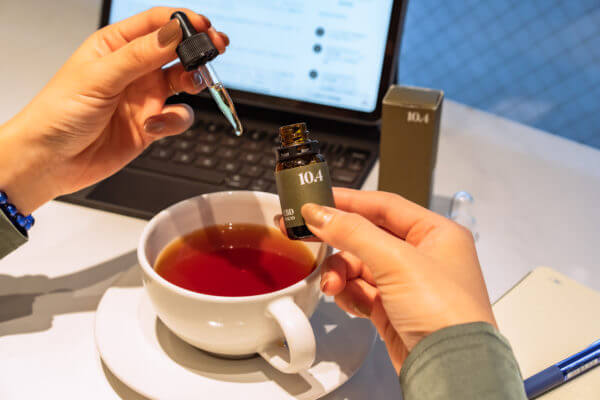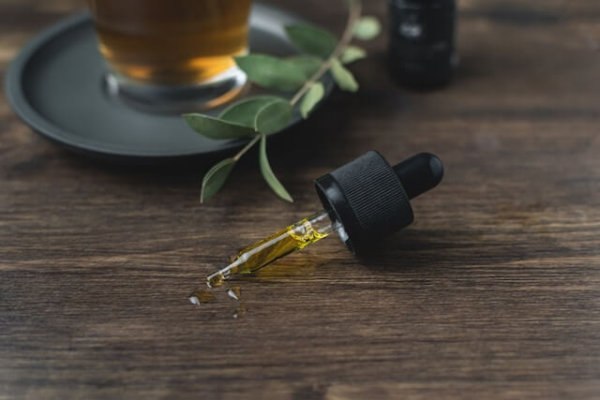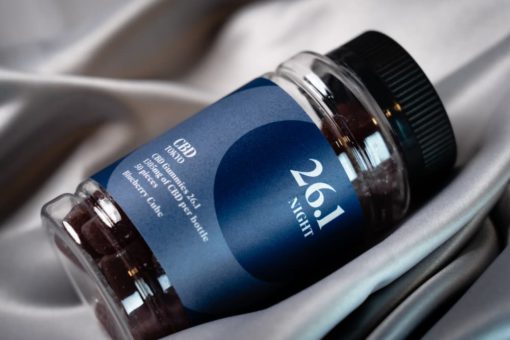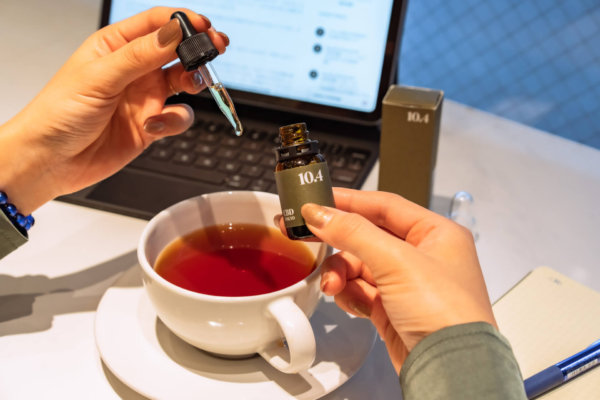CBD Articles, CBD in Japan, CBD Medical Science, Stress Management
Does CBD help with Depression and Anxiety? Treatment to Reduce Symptoms
Welcome to this insightful discourse on the topic of Cannabidiol, commonly known as CBD, and its potential application in the realm of mental health. In particular, this article explores thorough research and findings concerning the capacity of CBD to provide relief for symptoms associated with depression and anxiety. Presented in a reader-friendly format, it aims to equip you with the knowledge needed to make informed decisions regarding your wellness journey. The information herein is based on reliable sources, shedding light on the pivotal role CBD could play in the treatment of these common mental health conditions.
Understanding CBD Oil: A Comprehensive Intro
The rise of CBD in healthcare is indicative of its potential in helping to reduce symptoms such as depression and anxiety. With the inherent versatility that CBD offers, it is indeed a comprehensive subject to explore. Let us delve into understanding CBD oil, the extract obtained from cannabis. Yes, the very word “cannabis” might seem daunting, but it is vital to note that CBD is a non-psychoactive compound extracted from the cannabis plant, suggesting it does not offer the “high” that you might associate with this plant.
However, what does CBD do? Well, research has shown that CBD interacts with receptors in the brain, altering serotonin signals. Serotonin is a neurotransmitter that plays a substantial role in mental health. Low serotonin levels are often associated with people who have depression, and in some cases, not having enough serotonin is also linked to anxiety.
The CBD oil extracted from the cannabis plant for health purposes has grown popular due to its potential benefits. These possible benefits include but are not limited to, acting as a natural solution for pain and inflammation, managing epileptic seizures, treating PTSD and anxiety disorders, and, yes, potentially aiding in the case of depression. It’s imperative to point out that, because of its interplay with serotonin in our brain, CBD has shown considerable promise as a treatment for both depression and anxiety.
CBD, the cannabinoid harvested from cannabis, presents an interesting approach for mental health challenges. As we gradually come to understand the potential role of CBD in managing depression and anxiety symptoms, the stigma surrounding its source plant, cannabis, mitigates. In a world that is experiencing a rise in mental health challenges, the potential that CBD oil presents is indeed something to explore.

CBD Oil as a Potential Treatment for Stress and Anxiety?
Ever since the contemporary resurgence of CBD oil usage, numerous scientific seem to corroborate the assertion that CBD oil might indeed serve as a beneficial treatment for stress and anxiety disorders. Many individuals who have included CBD in their regimen have reported a significant reduction in their anxiety symptoms, hence suggesting CBD treatment’s potential usage against such complications.
In general, people suffering from anxiety are constantly plagued by worrying thoughts and fear, which can be an extremely debilitating experience. This might lead to a series of problems in both their personal and professional lives, disrupting day-to-day routines, as well as sleep patterns. Classically, those enduring anxiety disorders have been resorting to prescription medications. However, such medications often come with several side effects, which can complicate the treatment process further.
New avenues in the study of CBD oil revealed that it can serve as an alternative solution to conventional medications. Being a naturally occurring compound, its usage decreases the likelihood of adverse side effects. Studies suggest that it holds potential in effectively treating stress, and might imbue the body with a sense of calmness and composure.
Furthermore, anecdotal evidence and preliminary studies promote the idea of CBD as an addiction treatment. Many people struggling with opioid addictions reportedly experienced relief with regulated CBD treatments. CBD oil, with its anti-anxiety properties, can potentially alleviate the apprehension that drives substance abuse, providing a beneficial tool in the path of sobriety.
CBD, when administered in the correct dosage, can facilitate a more restful sleep, aiding those who face struggles with insomnia and sleep disorders due to stress or anxiety. All these indications advocate for further rigorous studies into CBD oil as a possible treatment for anxiety and stress disorders. It remains paramount to remember that while the ongoing research paints a promising picture, consulting with a healthcare professional before starting a CBD regimen is always advisable to ensure safety and efficacy.

The Role of CBD Oil in Combating Depression
The question on many minds is, “Can CBD oil treat depression?” This query has been the focus of considerable research, as the prevalence of depression continues to rise. The role of CBD oil in combating depression is seen as a promising possibility for treatment. In this context, CBD oil can potentially play an essential role as a treatment option. It is important to understand that while CBD does not cure depression, it can serve as a beneficial tool in the overall treatment process.
Despite the lack of sufficient FDA approval for CBD as a specific treatment for depression, studies have shown promising results. Furthermore, it is becoming increasingly clear that CBD can help to manage symptoms associated with depression. The primary reason is CBD’s potential to interact with the body’s endocannabinoid system, which plays a crucial role in maintaining mood balance. The ongoing research in this arena suggests that CBD oil may help ease several depression symptoms.
However, the use of CBD oil to treat depression does not exclude the possibility of side effects. It is essential to understand that, like any other medication or treatment option, CBD oil can cause side effects in some individuals. However, most individuals do not report serious side effects, and many find the potential benefits of CBD outweigh the risks. This makes it compelling to consider incorporating CBD into a holistic approach to treating depression.
In conclusion, while CBD oil can indeed show positive effects in reducing symptoms of depression, it is always recommended to consult with a healthcare professional before starting treatment. It is also necessary to remember that CBD oil is not a stand-alone solution for depression but can provide beneficial support in conjunction with other treatments.

The Effects of CBD Products on Depression: An In-Depth Look
Depression, a significant cause of disability worldwide, could be better managed with the correct treatment. In searching for an effective treatment, many have found help from an unlikely source – Cannabidiol or CBD products. The role of these products in ameliorating depressive symptoms has piqued the interest of scientists and patients alike. But what impact do these products genuinely have on depression?
Full-spectrum CBD products have been shown to have a noteworthy effect on depressive symptoms. These are not your typical products; they contain all cannabinoids found in the cannabis plant, including the notorious THC compound. Preclinical studies suggest that CBD has the potential to help alleviate depressive symptoms thanks to its chemical properties, which produce effects that promote relaxation and induce sleep, a common challenge for individuals living with depression. These products cause few side effects too, cementing their position as a viable treatment alternative.
It’s crucial to understand that while these effects have been observed, scientists are still deciphering the exact mechanisms by which CBD products influence depressive symptoms. It seems that they help by interfering with the serotonin system, known to cause depressive symptoms when unbalanced. By maintaining the balance of this system, CBD products may effectively help reduce depression.
However, the treatment aspect of these products is not one-dimensional. Apart from biochemical interactions, they also help by promoting physical well-being. Regular use of CBD products can contribute to better sleep patterns, another critical aspect of managing depression. Improved sleep has been shown to influence mood positively, and hence help battle depressive symptoms.
Therefore, while CBD products may help with depression, it is recommended to use them as part of a larger treatment plan, considering that depression is a complex condition. Also, due to the possible side effects, it’s best to consult with a healthcare provider before starting any new treatment. Finally, be sure to explore all available options to make an informed choice about your health.
WebMD’s Perspective on CBD and Depression
WebMD’s perspective on CBD and its potential benefits to reduce depression symptoms consistently echoes its nature as an alternative therapeutic approach. Considered a potential treatment to address depression, CBD has been increasingly reviewed by numerous scientists and governmental institutions including NIH, and government research, thus far, suggests that CBD can help treat depression effectively. Yet, it is essential to remain mindful of the possibility of side effects. Like any form of treatment, CBD’s potential side effects must not be overlooked.
WebMD’s standpoint makes it clear that understanding CBD is integral to discerning its application as a treatment for stress, anxiety, and particularly depression. The role of CBD oil in combating depression has piqued the curiosity of researchers worldwide. Echoing responses from those who share collective interests, findings suggest that CBD seems to positively impact those battling depression.
WebMD’s reports provide an in-depth look at the effects of CBD products on depression, presenting a balanced view. It is reiterated that while CBD does show immense promise, it is vital not to sideline the topic of side effects. However, the side effects are often found to be minor compared to the vast beneficial potential CBD oil could offer.
Remaining aware of both the benefits as well as potential side effects is integral to making informed decisions about the use of CBD. While substantial evidence suggests that CBD can effectively treat depression, one must remember to consider all possibilities. Yet, the promising potential that CBD holds cannot be undermined.
As more studies are commissioned and reviewed, there is hope to find more definitive answers about CBD’s impact on depression. The research’s objective is to find a treatment that ensures depression can be addressed with minimal side effects. In light of increasing recognition, CBD’s use in treating depression highlights further exploration of its therapeutic potential.
In conclusion, WebMD presents a balanced view of CBD – a thoughtful synopsis of its benefits, side effects, and overall effectiveness. This view encourages users to approach CBD usage for treating depression with caution and optimism, a balance between hopeful possibility and thoughtful consideration, making CBD a noteworthy alternative in the mental health domain.

Is there a Connection Between CBD Oil and Reduced Stress?
There is growing conviction within the medical field that CBD oil may indeed have a significant impact in the treatment of various stress-related conditions. The question that this resource aims to address is, can CBD truly reduce stress symptoms? As a non-intoxicating component of cannabis, CBD has distinguishably risen to prominence. After all, numerous research studies indicate that CBD can have calming effects. Moreover, preliminary treatments imply that CBD can potentially alleviate several symptoms linked to stress disorders such as insomnia and anxiety. Nonetheless, it’s crucial to take elevated precautions when considering CBD oil as a treatment modality.
One should always consider the possible side effects of CBD. Despite being generally benign, side effects can, on rare occasions, encompass nausea, fatigue, and irritability.
Some studies suggest CBD could potentially interfere with certain medications. Hence, it is imperative that one thoroughly consults with a credible medical professional before integrating CBD oil into any treatment plan. This ensures that the chosen course of action is both safe and effective. Remember, unverified self-medication can often lead to unintended and unwelcome side effects.
Amidst the surge in popularity of CBD products, it appears that CBD oil’s potential to reduce stress cannot be dismissed or overlooked. While we continue to explore these possibilities, it’s important to remember that CBD isn’t a universal cure-all—results can vary greatly between individuals, and more research is necessary to fully ascertain the therapeutic benefits of CBD. In fact, the immense potential CBD has revealed so far as a treatment for diverse stress symptoms only further enforces the urgency for additional investigations. From an optimistic vantage point, unraveling CBD’s mechanisms may lead to new-era medications or treatments that can potentially make significant inroads in managing a variety of stress disorders.

Exploring the Effects of CBD on Mental Health
The question that begs to be addressed is “Does CBD help with depression and anxiety?” With high frequency, there is ongoing interest in the effects of CBD on mental health. As a prevalent active ingredient within the hemp plant, CBD, or cannabidiol, has grown in popularity for its potential therapeutic properties.
Unlike THC, another well-known component of cannabis, CBD is not psychoactive, thus it doesn’t produce the same ‘high’ effects. Furthermore, CBD shows promise as a disorder treatment, making it an appealing option for individuals who suffer from anxiety. A growing body of research suggests that CBD may provide the necessary relief to alleviate the symptoms of anxiety and stress.
With the escalating need for effective anxiety and depression treatment, CBD’s potential role in mental health cannot be overstated. CBD could offer an alternative path to traditional medication treatments, which often come with harsh side effects. Side effects of prescribed medication can be problematic, leading individuals to seek holistic and more natural methods to ease their discomfort. Within this sphere, CBD may play a crucial part.
Several studies are indicative that CBD does display potential in treating various anxiety disorders. Some have shown it helps reduce anxiety-related behaviors in individuals experiencing conditions like post-traumatic stress disorder (PTSD), general anxiety disorder (GAD), and social anxiety disorder (SAD), among others.
However, while evidence suggests CBD could be beneficial, the complete effects of CBD on these disorders, and mental health more broadly, are still being explored. Patients looking to try CBD should consult with a healthcare professional to clarify possible interactions and alter the effects of current treatment plans, ensuring the safe and effective use of CBD.
How CBD Products Can Alleviate Depression Symptoms
Clinically reported instances of depression as a mental disorder are globally on the rise. Consequently, increasing attention has been given to investigating alternative treatments beyond traditional medication.
As clinical research expands, it is becoming apparent that CBD and THC, two naturally occurring compounds in cannabis, offer promising potential as a treatment for depression. CBD products help nourish an endocannabinoid system that research suggests plays a role in mood regulation. It helps alleviate symptoms by interacting with serotonin receptors in the brain, known to contribute to feelings of well-being and happiness.
THC, on the other hand, is a psychoactive component, and while it can also help manage symptoms, some individuals may find its effects more intense than CBD. When it comes to medication for depression, caution must be observed. Like any drug, CBD products should not be considered a universal remedy and are not expected to be equally effective for everyone. Yet, many people who have tried these products have reported significant relief in their depression symptoms.
Although we have discussed WebMD’s perspective on CBD, it is vital to remember that medical consultation is necessary before considering such alternatives. Understanding the effects of CBD on mental health is crucial, which was the intent behind our comprehensive intro to CBD oil. Assessing its role in combating depression is equally important. Moreover, we explored the connection between CBD oil and reduced stress in a previous section. It is well-understood that stress can contribute to symptoms of depression, so any treatment that can alleviate stress may positively impact depression symptoms.
In conclusion, clinical research shows promise in the use of CBD products for depression treatment. However, it is essential to keep in mind that just as every individual experiences depression differently, the efficacy of CBD products will also vary from person to person.

How to Choose the Right CBD product as a potential Treatment for Depression
As an essential aspect of managing depression, choosing the right CBD treatment may not be as straightforward as it seems. It’s vital to treat such conditions effectively to reduce symptoms and improve quality of life. The process can be an overwhelming experience, given the numerous CBD products available in the market. However, with the appropriate guidelines, it’s manageable to select a suitable CBD product that effectively treats depression.
Firstly, it’s crucial to consult with a medical professional or clinical expert before integrating CBD into your existing treatment plan. They can guide you on the optimal dose based on your requirements and minimize the risk of potential side effects. A medical practitioner can also provide insights considering the interaction of CBD with other drugs, particularly anti-depressants. This is paramount, as CBD can potentially alter the way the body metabolizes certain types of drugs.
Secondly, it’s pertinent to consider the form of CBD product that suits your lifestyle and preferences. Understanding the onset and duration of different CBD products can guide this decision. Some people prefer oils or tinctures for their ease of use and ability to adjust the dose easily. Others find edibles or capsules as the right choice due to their pre-measured doses and convenience.
Thirdly, a careful review of product quality is essential. It’s advisable to invest in products from reputable sources that provide third-party laboratory results to substantiate their claims. Choosing the right product ensures that CBD can reduce depression effectively and reduces the risk of undesired side effects.
In conclusion, with considerable research and careful consideration, you can choose the right CBD treatment for depression that meets your specific needs and preferences. Remember, though CBD has been shown to aid in reducing symptoms of depression, it’s not a substitute for traditional medical or clinical treatments and should be used as a complementary therapy. While anti-depressants remain standard treatment, CBD’s potential role in depression treatment garners significant interest. Therefore, further studies are warranted to fully understand its effectiveness.
In conclusion, the potential of CBD to alleviate symptoms of depression and anxiety signifies a significant breakthrough in mental health treatment. Its non-addictive, naturally-occurring characteristics make it an attractive alternative to conventional therapy. User testimonies, along with preliminary scientific investigations show promise. Continued research will bring to light more about its capabilities and limitations. Until then, it’s essential that anyone considering CBD for mental health issues consult with a healthcare provider experienced in cannabis-based treatment to ensure safety and efficacy. Remember, your mental well-being is paramount.
Before you go, just remember:
- Many studies show promise regarding treatment with CBD for depression
- CBD and THC both come from the Cannabis Sativa plant but are not at all the same thing
- THC-free hemp-based CBD oil is legal in Japan
- CBD oil is available online for purchase in Japan
Other studies on CBD, Depression, and Anxiety:
- CBD for Concentration
- CBD for Epilepsy
- WebMD: CBD for Depression and Anxiety
- National Institute of Mental Health (NIH): Depression








